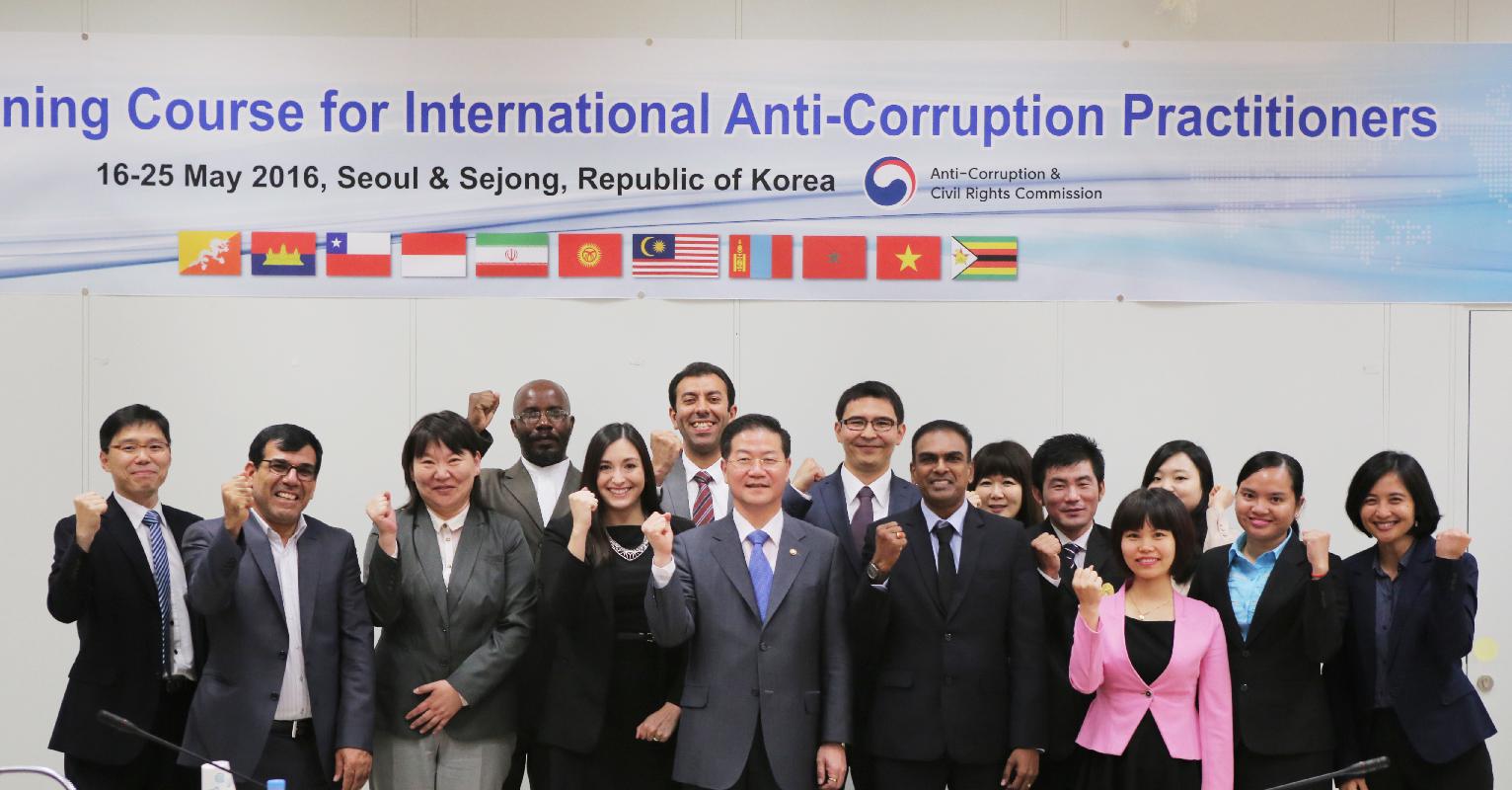ACRC runs the anti-corruption training course for public officials from 11 countries
- Date2016-05-17
- Hit5,344
| The Anti-Corruption and Civil Rights Commission (ACRC) organized a training course designed to help build anti-corruption capacity of public officials from around the world from May 16th for 10 days. The ACRC has operated the ACRC Training Course for International Anti-Corruption Practitioners every year since 2013 for public officials working at anti-corruption agencies around the world. This year, at the 4th training, 11 officials from 11 countries, including Chile, Iran, Morocco, Vietnam, and Zimbabwe, were selected out of 40 applicants in 16 countries. |  |
This year's training program included a lecture on the "Improper Solicitation and Graft Act," which has been gaining international recognition since its enactment last March. The Chairman of the ACRC was invited to introduce the new anti-bribery Act at the OECD Integrity Forum in Paris in March 2015. The Act will be enforced in this September.
Also, 2016 survey of the Political and Economic Risk Consultancy (PERC) in Hong Kong analyzed that the recent improvement in perceptions of corruption in Korea may indicate the public's expectation for positive consequences of the new anti-corruption law. The survey assessed perceptions of corruption in 16 Asia-Pacific countries earlier this year.
This year's training program expanded lectures on protection of corruption and public interest whistleblowers. Korea's whistleblower protection system was included in the Resource Guide on Good Practices in the Protection of Reporting Persons published by the United Nations Office on Drugs and Crime last November.
In addition, the training program included a study visit to the Korea Customs Service which was placed on the highest grade on both the Integrity Assessment and Anti-Corruption Initiative Assessment last year, in order to provide an opportunity to learn about anti-corruption best practices.
At the welcoming ceremony of the ACRC Training Course, held at the ACRC in Sejong on May 17, Vice-Chairperson Kwak Jin-young of the ACRC noted that Goal 16 of the Sustainable Development Goals (SDGs) adopted last September is dedicated to anti-corruption and that the 2nd review cycle of the United Nations Convention against Corruption (UNCAC) was officially launched last November. "Keeping up with the international trend, the ACRC will provide its full support to strengthen anti-corruption capabilities of countries around the world so that they can achieve sustainable development," the Vice-Chairperson added.
An official from the ACRC said, "We hope that the anti-corruption training course for public officials will help reduce corruption in each country and strengthen international cooperation to fight corruption by enhancing the anti-corruption capacities of human resources and institutions.









